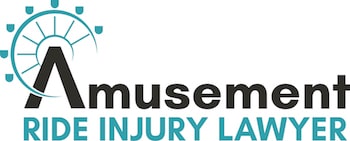Concussion and Head Injury
A concussion is a traumatic brain injury that is caused from hitting your head, or your head being forcefully shaken. Concussions can occur on amusement rides because of the abrupt stops, object falling and hitting the head, or getting ejected or falling off of a ride. Concussions can also occur from the sharp turns many rides have, because this type of brain injury can easily occur from the head shaking from the force of a roller coaster.
Types of Injury
Roller coasters have also been known to cause another brain injury called subdural hematoma, which occurs when the blood vessels burst open. This condition can cause headaches, and must be treated medically with surgery. Another issue that may occur is decreased oxygen flow to the brain, causing loss of consciousness. This can occur when the G-force of the roller coaster is too great, because it can cause a loss of oxygen flow to the brain.
Signs and Symptoms
After a day at the amusement park, if you or your child is feeling sick or their head hurts, they may be suffering from a concussion or another head injury. Here are some of the symptoms to look out for:
- Headache, pressure in the head
- Dizziness
- Nauseousness
- Confusion
- Loss of memory
- Throwing up
- Fatigue
- Slurred speech
Sometimes the symptoms from a concussion or brain injury do not appear for a day after or several days after the initial accident. If you or your child experiences these symptoms several days later, you should seek medical attention. Some symptoms that can be experienced after a concussion or brain injury may be:
- Sleeping problems
- Trouble concentrating
- Irritability
- Changes in eating
- Excessive crying in young children
- Appearing to be dazed or confused
Existing Conditions
Oftentimes, people with certain medical conditions like seizures or aneurysms should already be careful about going on roller coasters and other rides, however, traumatic brain injuries and subdural hematomas could potentially be more likely for people with these medical conditions. Often amusement parks do not place warning signs for these medical conditions in front of roller coasters and other fast rides.
Getting Help
If you or your child has suffered from a concussion or traumatic brain injury after riding on an amusement park ride or roller coaster, seek medical attention and call us to consult with an attorney.

